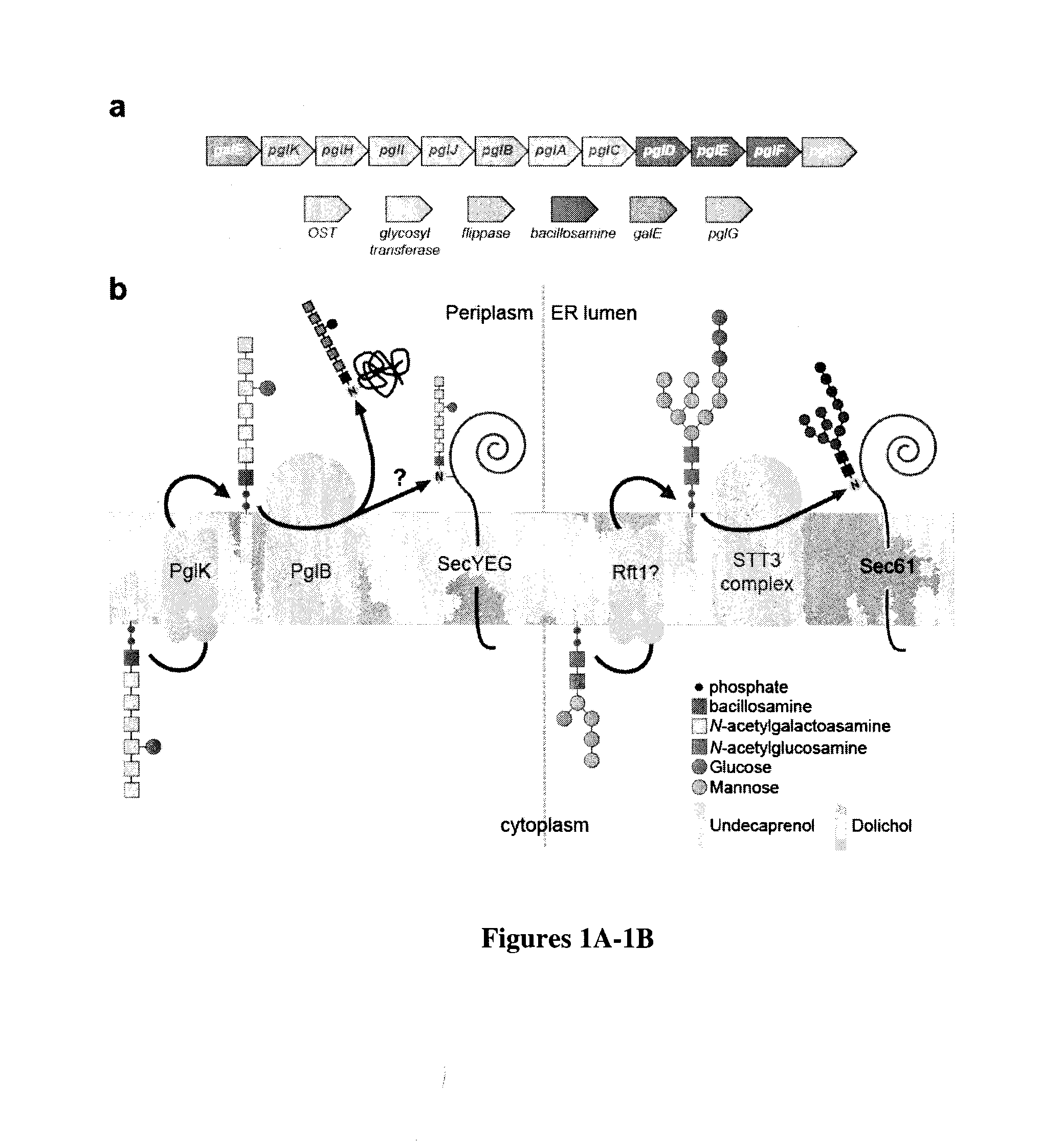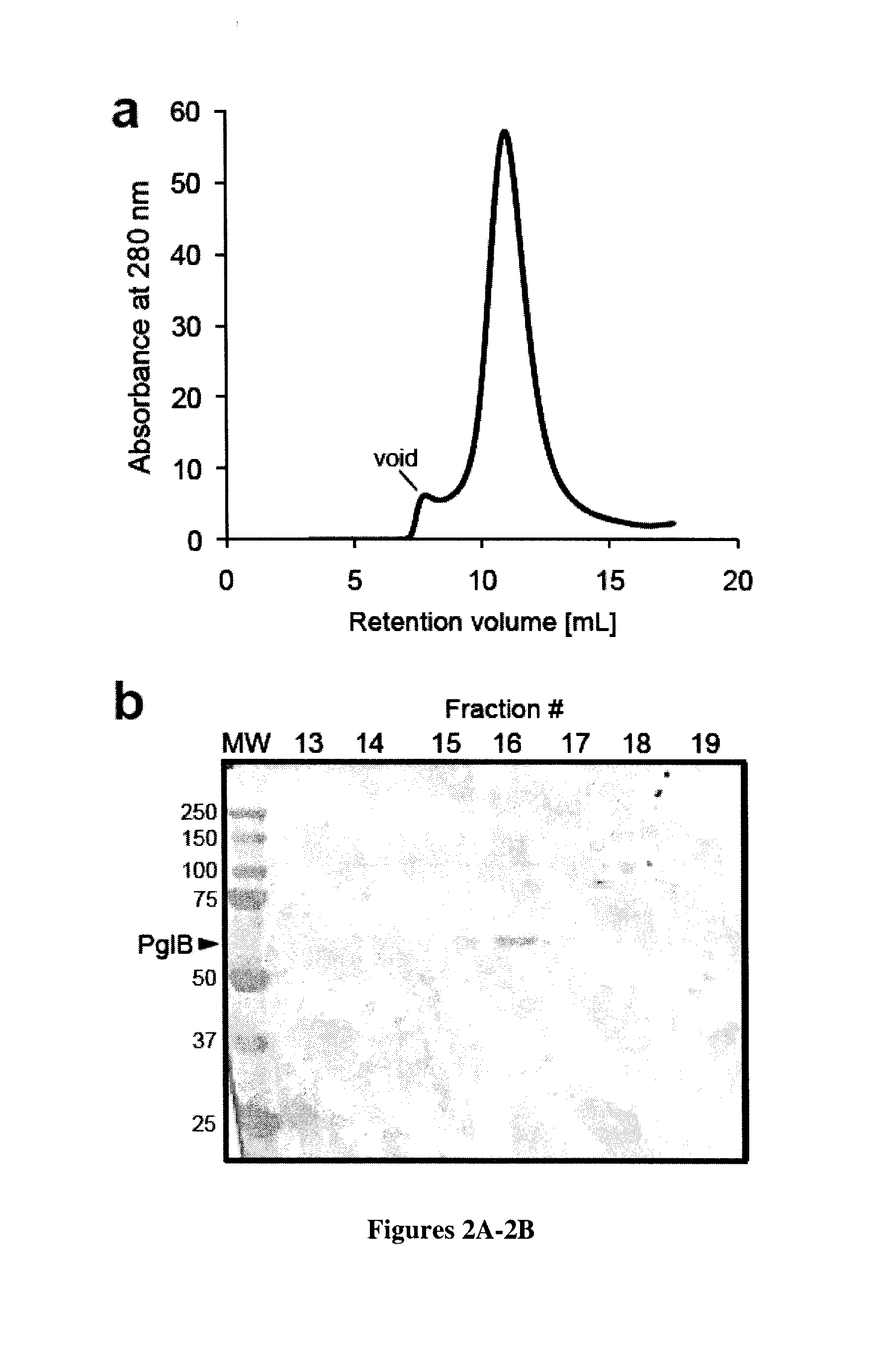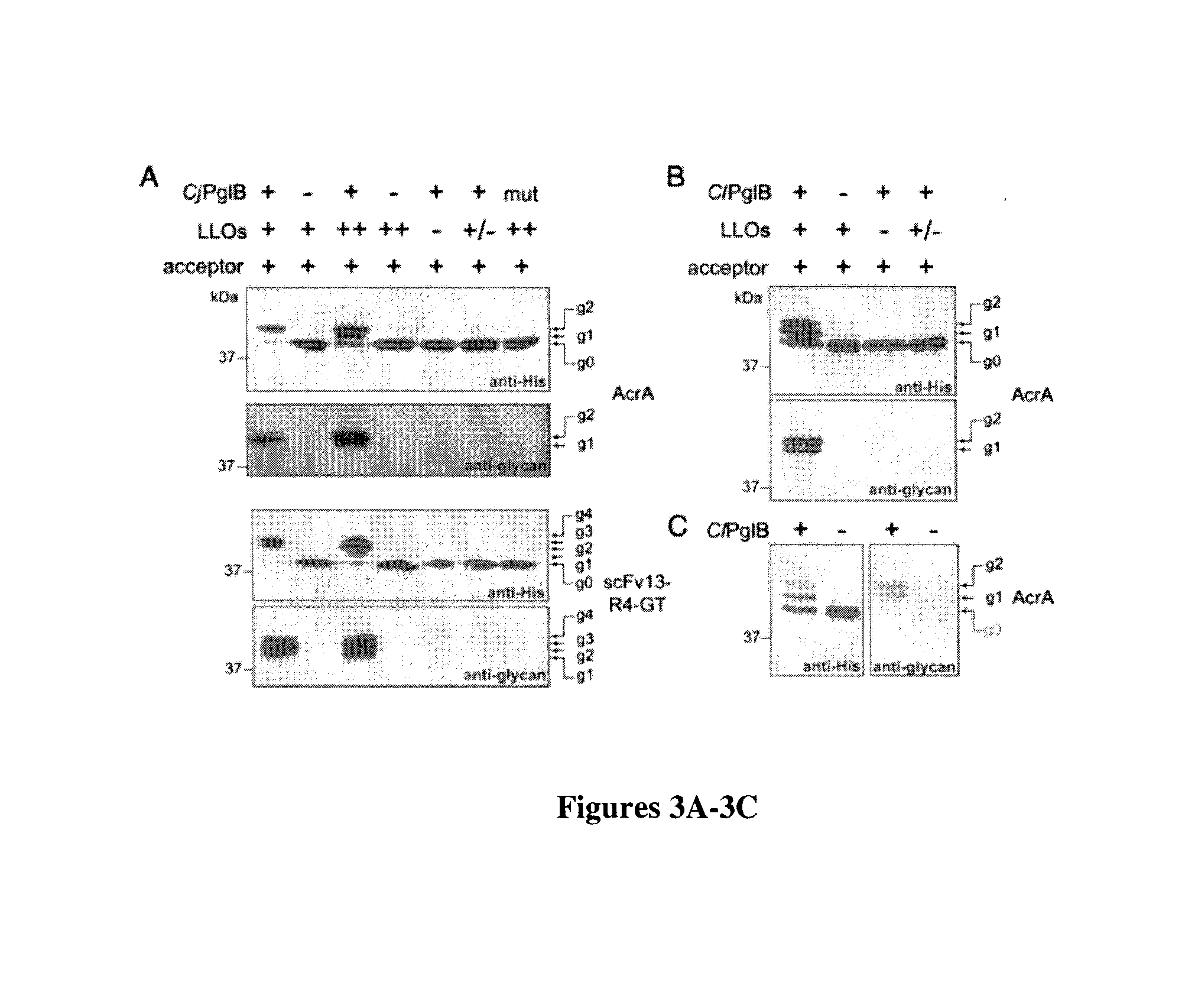Prokaryote-based cell-free system for the synthesis of glycoproteins
a cell-free system and glycoprotein technology, applied in the field of prokaryote-based cell-free system for the synthesis of glycoproteins, can solve the problems of inefficient glycosylation, low product yield, and inability to faithfully process the target protein, so as to eliminate the potential for contamination from background n- or o-linked systems, accurately and efficiently glycosylate proteins
- Summary
- Abstract
- Description
- Claims
- Application Information
AI Technical Summary
Benefits of technology
Problems solved by technology
Method used
Image
Examples
example 1
Preparation of N-Linked Glycosylation Components
[0088]To begin, functional reconstitution of bacterial N-linked glycosylation in vitro was attempted. Minimally, this required three components: an OST, a lipid-linked oligosaccharide (LLO) (i.e., a lipid-linked glycan) and an acceptor protein carrying the D / E-X1-N-X2-S / T motif. For the OST, CjPglB was expressed in the membrane fraction of E. coli cells, solubilized with 1% N-dodecyl-β-D-maltopyranoside (DDM) and purified to near homogeneity by nickel affinity chromatography followed by gel filtration (FIG. 2B). Separately, E. coli cells carrying the C. jejuni pgl locus were used for producing the oligosaccharide donor. This gene cluster encodes enzymes that carry out the biosynthesis of a GlcGalNAc5Bac heptasaccharide (where Bac is bacillosamine) and its transfer from membrane-anchored undecaprenylpyrophosphate (UndPP) to asparagine residues. Here, a modified version of this cluster that carried an inactivated PglB gene (Wacker et al....
example 2
Functional Reconstitution In Vitro of the C. jejuni Protein Glycosylation Pathway
[0089]To evaluate the reconstituted glycosylation pathway, CjPglB OST was combined with LLOs extracted from E. coli cells and purified AcrA. This reaction resulted in efficient glycosylation of both AcrA sites as evidenced by the mobility shift of nearly all of the AcrA from the unmodified (g0) to the fully glycosylated (g2) form (FIG. 3A). This activity was dependent on PglB and LLOs. Doubling the LLO concentration resulted in the appearance of the g0 and g1 forms of AcrA, in addition to g2, suggesting slightly less efficient glycosylation. Importantly, glycosylation activity was lost when lipid extracts from cells lacking the pgl cluster or an inactive CjPglB mutant was used (FIG. 3A). These results were corroborated by detecting glycosylated AcrA with serum specific for the C. jejuni N-glycan (FIG. 3A). Nearly identical results were observed when the glycoengineered scFv13-R4-GT protein was used as t...
example 3
Cell-Free Translation of Protein Targets
[0090]To determine whether existing cell-free translation systems could synthesize protein targets of interest, both an E. coli CFE-based protein synthesis system and the PURE (protein synthesis using recombinant elements) system that uses purified translation components and T7 RNA polymerase (Shimizu et al., “Cell-Free Translation Reconstituted With Purified Components,”Nat. Biotechnol. 19:751-755 (2001), which is hereby incorporated by reference in its entirety) were evaluated. This involved priming the CFE and PURE systems with three different AcrA DNA sequences cloned in a T7 promoter-driven pET vector. Using the CFE system, ˜150-250 ng / mL of each AcrA variant was produced as a full-length polypeptide in 1 h (FIG. 4A). AcrA carrying its native signal peptide accumulated to the highest level but also experienced the greatest amount of degradation. In contrast, AcrA carrying a PelB signal peptide in place of the native signal and AcrA lackin...
PUM
| Property | Measurement | Unit |
|---|---|---|
| Composition | aaaaa | aaaaa |
Abstract
Description
Claims
Application Information
 Login to View More
Login to View More - R&D
- Intellectual Property
- Life Sciences
- Materials
- Tech Scout
- Unparalleled Data Quality
- Higher Quality Content
- 60% Fewer Hallucinations
Browse by: Latest US Patents, China's latest patents, Technical Efficacy Thesaurus, Application Domain, Technology Topic, Popular Technical Reports.
© 2025 PatSnap. All rights reserved.Legal|Privacy policy|Modern Slavery Act Transparency Statement|Sitemap|About US| Contact US: help@patsnap.com



